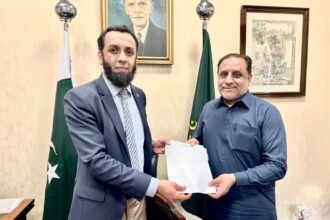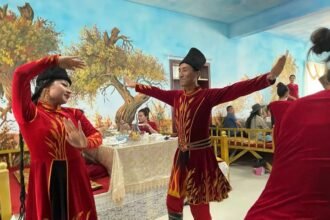As Pakistan reflects on its decades-long journey, the vision of Quaid-e-Azam Muhammad Ali Jinnah looms as both a beacon of hope and a benchmark for progress. In his historic address to the Constituent Assembly on August 11, 1947, Jinnah articulated a dream of a nation where citizens of all faiths, castes, and creeds would live in harmony, united by equality, justice, and the pursuit of progress. “You are free,” he declared, emphasizing the freedom to practice religion without interference from the state—a vision rooted in tolerance, democracy, and unity.
Today, Pakistan’s story is one of resilience, triumphs, and trials. From its emergence as a nuclear power to its remarkable contributions to global peacekeeping, the country has repeatedly demonstrated its strength. In the arts, sciences, and sports, Pakistanis have made their mark on the world stage. Women are breaking barriers, young entrepreneurs are driving innovation, and cultural ambassadors are spreading the rich heritage of the nation. These successes reaffirm that Jinnah’s dream is alive and attainable.
However, a fair reflection also demands introspection. Have we fully lived up to Jinnah’s ideals? The answer lies in acknowledging our achievements while addressing areas where we have faltered.
Religious freedom, a cornerstone of Jinnah’s vision, has faced challenges over the years. While Pakistan’s constitution guarantees the rights of all citizens, societal attitudes and occasional misuse of laws have strained interfaith harmony. Yet, hope shines through initiatives promoting dialogue and understanding among communities. Programs celebrating religious diversity and individuals championing interfaith cooperation remind us that tolerance is achievable when communities work together.
The rule of law, an essential pillar of democracy, has been tested by political instability and institutional weaknesses. Repeated disruptions to democratic processes have eroded public trust. Rebuilding this trust requires a collective commitment to accountability, transparency, and justice. Civil society, media, and independent judiciary efforts must converge to strengthen democratic institutions and restore faith in governance.
Equality and social justice remain at the heart of Jinnah’s vision. While strides have been made in education and poverty alleviation, systemic inequalities persist. Women in rural areas face significant barriers, and the economic divide between the rich and poor remains wide. Yet, countless stories of resilience inspire hope—like women entrepreneurs leading startups, youth excelling in competitive fields, and grassroots initiatives uplifting marginalized communities. These examples demonstrate that change is not only possible but already underway.
Education, the foundation of any nation’s progress, reflects both challenges and opportunities in Pakistan. While access to education has improved, disparities between urban and rural areas remain glaring. Reforming curricula to prioritize critical thinking, innovation, and inclusivity is vital. Programs like Teach for Pakistan and advancements in digital education platforms show that bridging gaps and empowering the youth is within reach.
Economically, Pakistan’s journey has been a testament to its resilience. Despite challenges like corruption and external debts, the nation has seen progress in technology, agriculture, and industry. Encouraging innovation, supporting small businesses, and investing in renewable energy can unlock even greater potential. Emerging tech startups and digital pioneers are already positioning Pakistan as a hub of creativity and enterprise, showcasing the untapped promise of the nation’s youth.
Through all its trials, the spirit of the Pakistani people remains unwavering. Farmers battling natural disasters, students excelling in global competitions, and families rebuilding after setbacks all reflect the resilience that defines the nation. These everyday stories are a testament to the strength and determination of a people committed to progress.
Jinnah’s vision is not a relic of the past—it is a living guide for the future. It calls on every citizen to rise above divisions, embrace unity, and work towards a common goal. Each act of kindness, each effort toward justice, and each contribution to progress brings us closer to the Pakistan Jinnah dreamed of. The youth, in particular, have a pivotal role to play as the torchbearers of this vision. By fostering innovation, championing tolerance, and upholding justice, they can steer the nation toward a brighter future.
As Pakistan moves forward, let us draw strength from our successes and courage from our setbacks. Jinnah’s ideals of equality, justice, and progress remain as relevant today as ever, guiding us toward a prosperous and inclusive future. It is up to each of us to embody these principles in our daily lives, ensuring that the dream of Pakistan becomes a reality not just for today, but for generations to come. Together, we can build a nation that truly reflects the ideals of its founding father—a Pakistan of hope, resilience, and boundless potential.
Reflecting on Pakistan’s Journey: Are We True to Quaid’s Ideals?

Leave a comment








